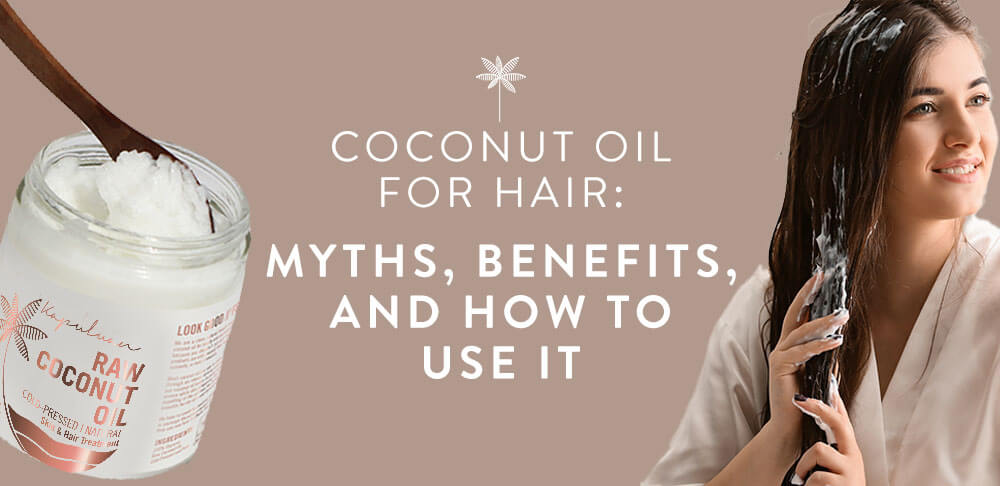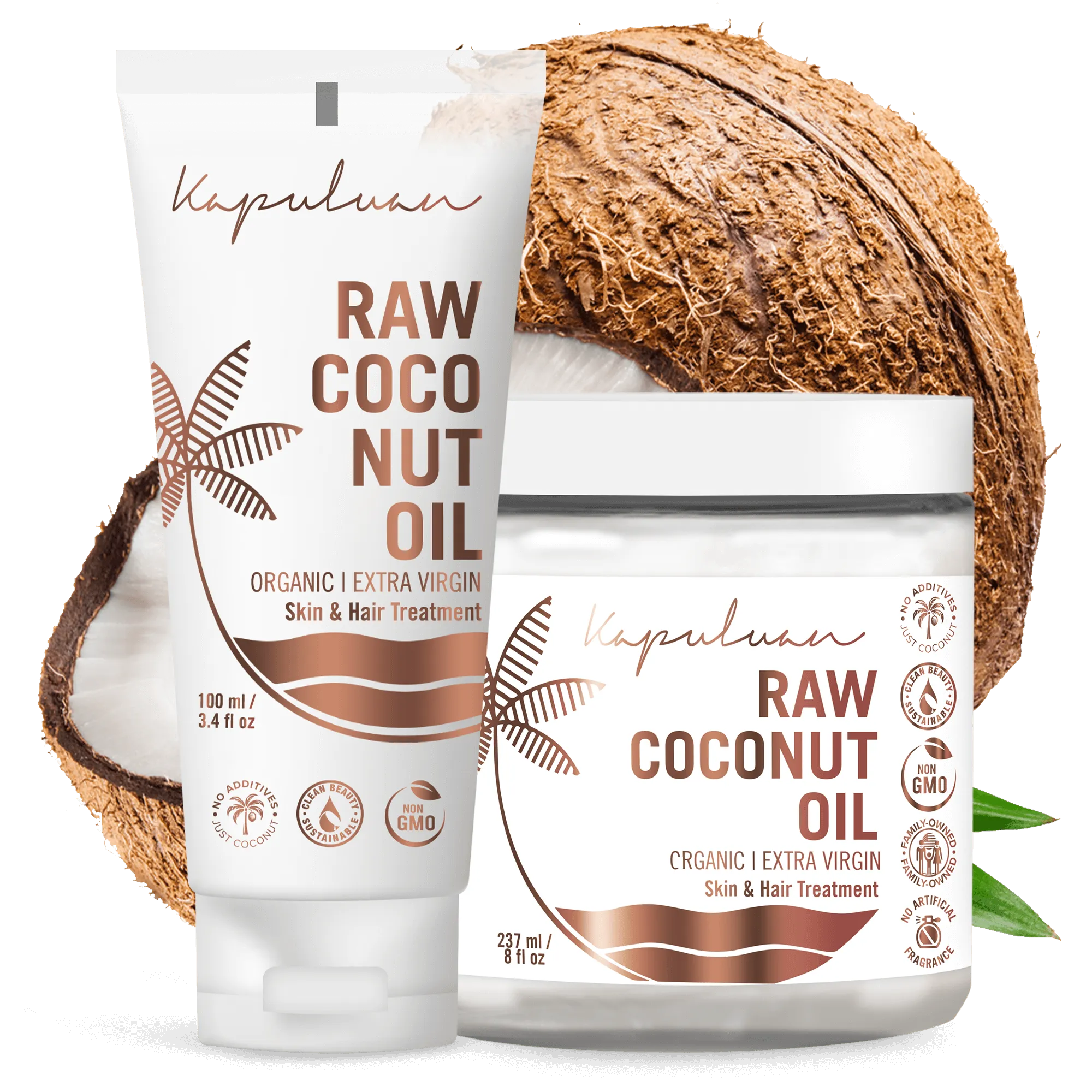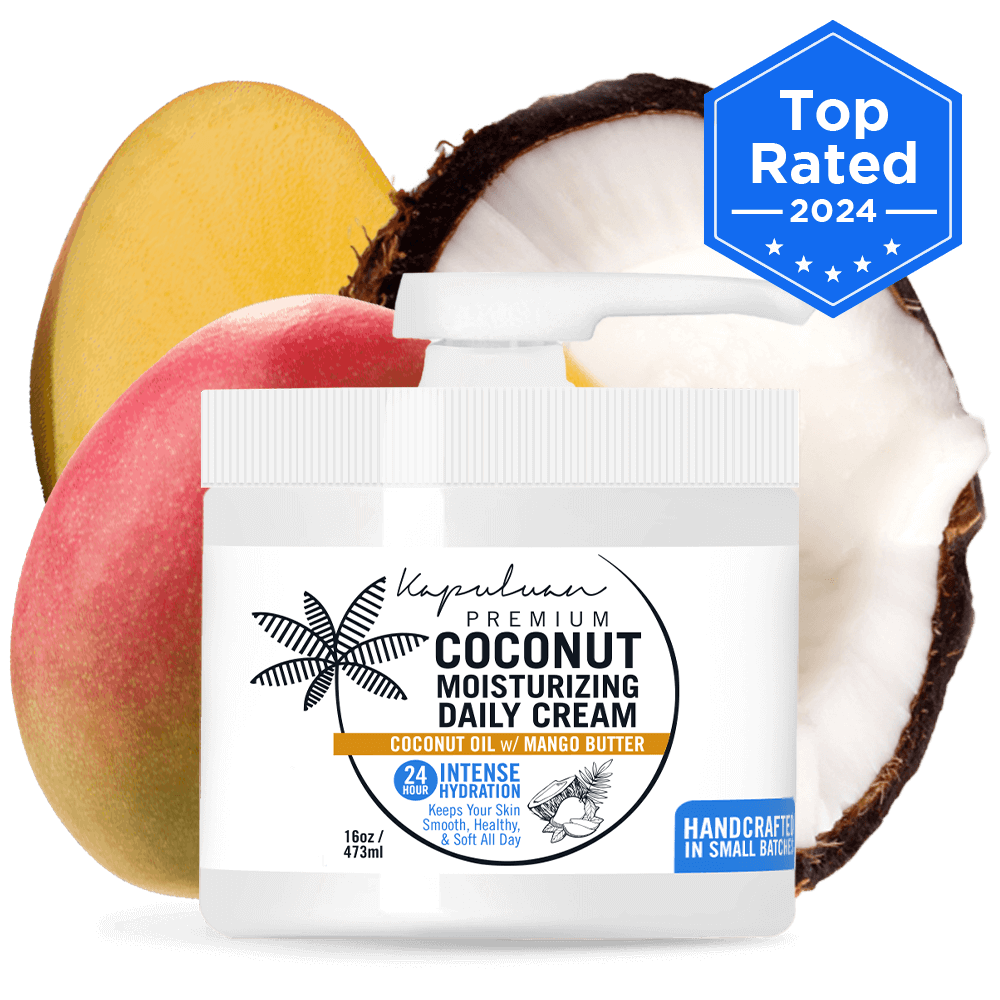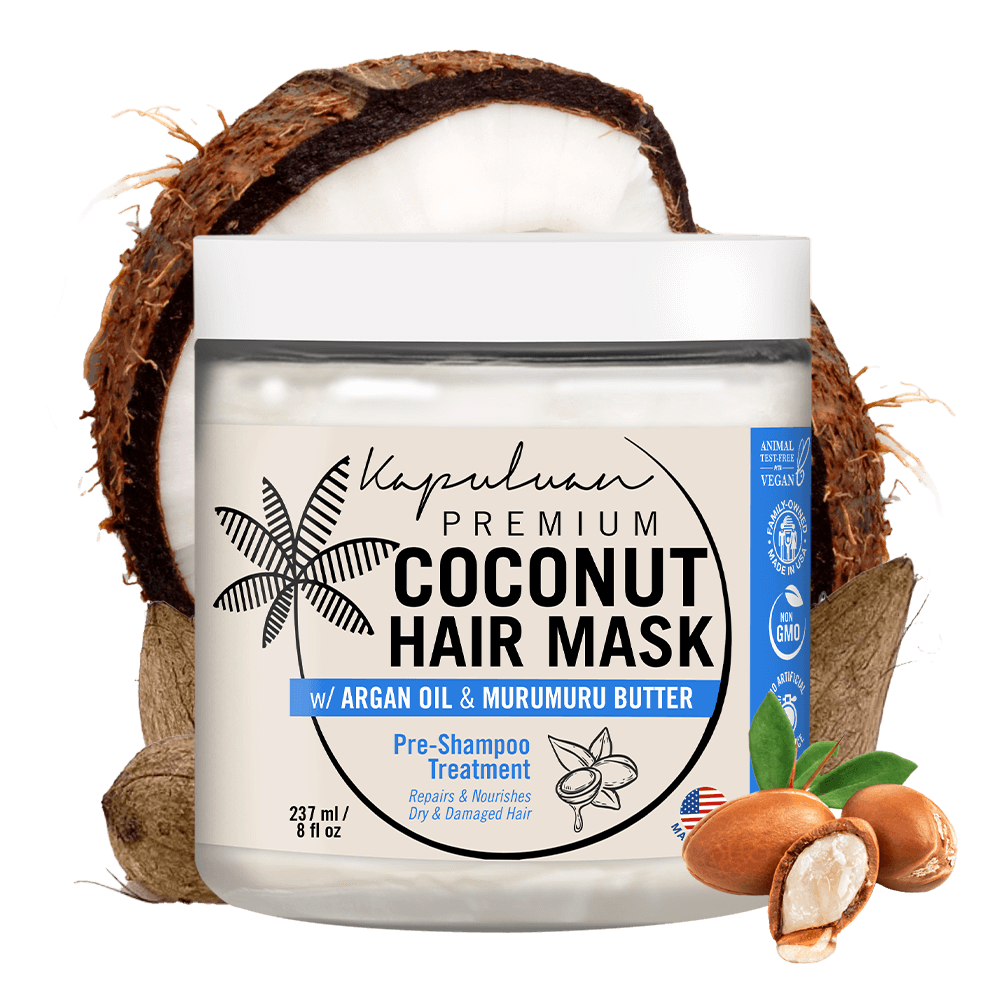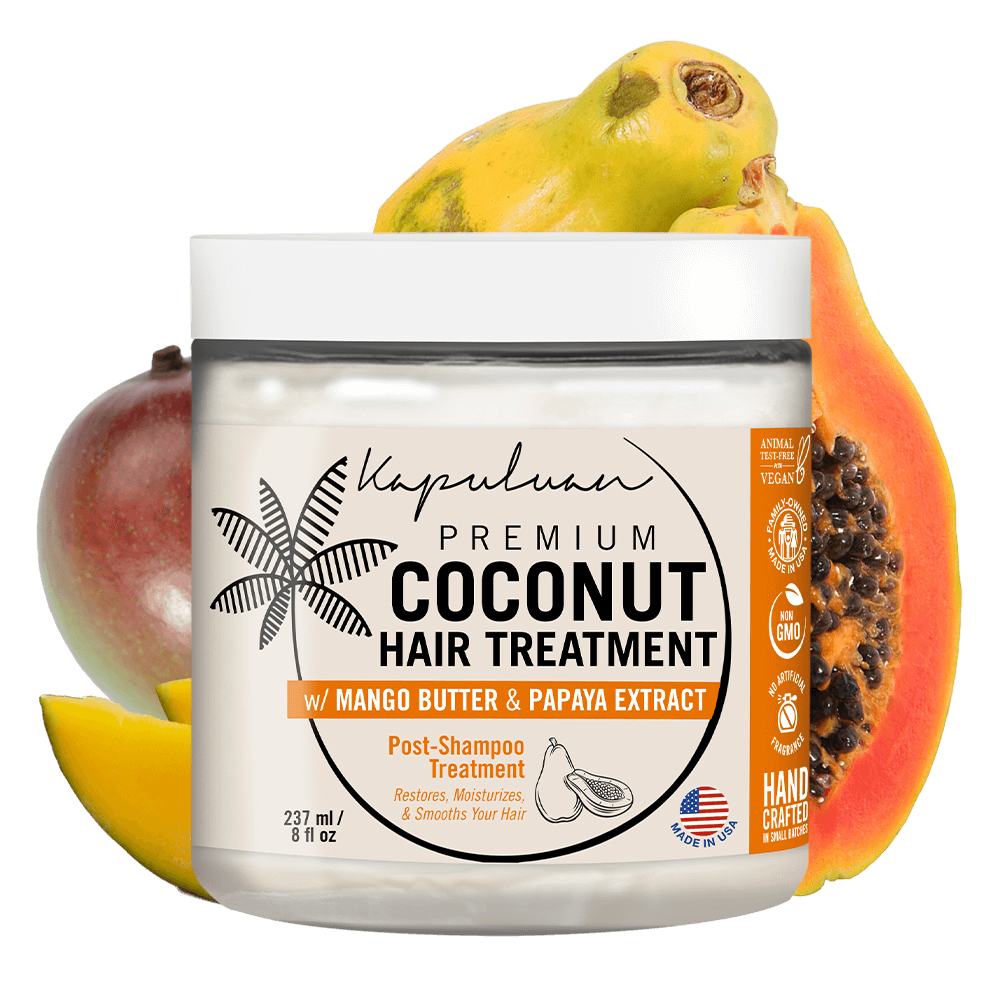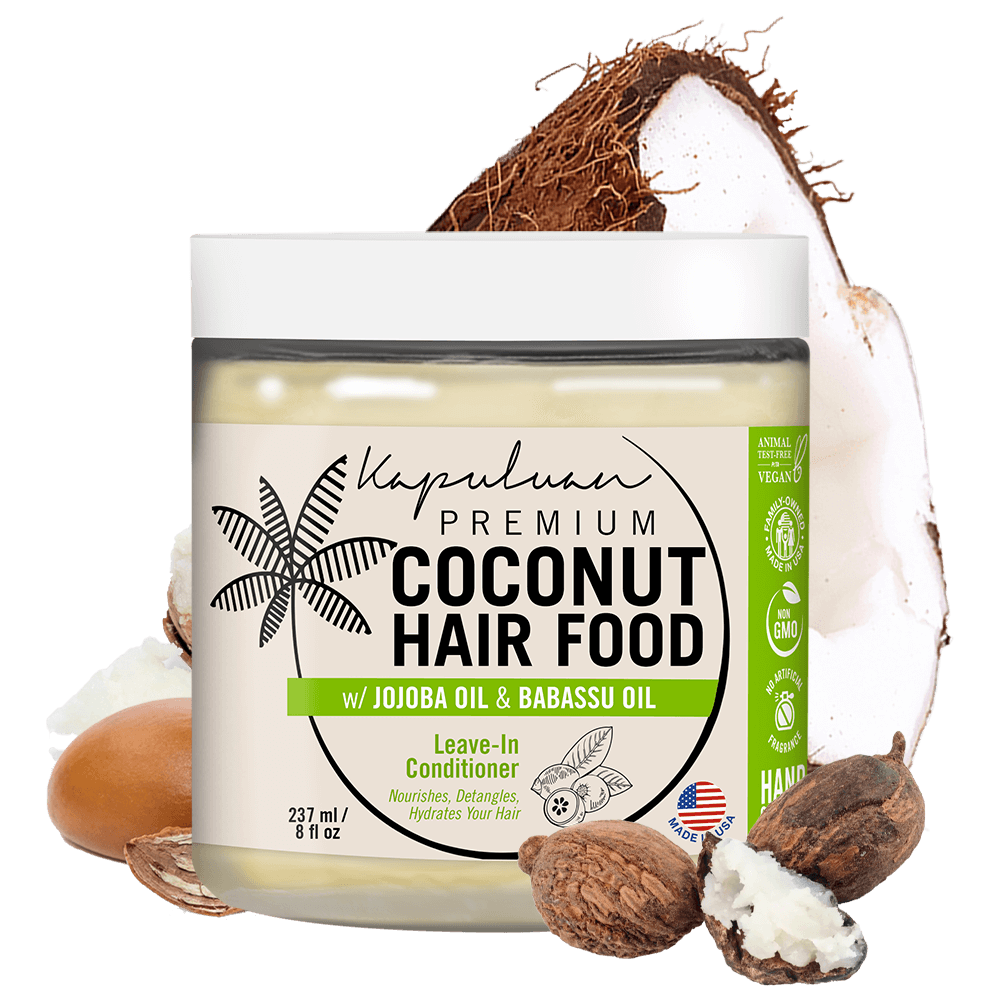We’ve all heard the whispers – Coconut oil is a secret elixir, promising to transform our limp and lifeless locks into a cascade of glossy, healthy strands. But what’s the truth behind this miracle cure for all hair woes? We’re here to dispel the myths, reveal the scientifically proven benefits, and guide you on how to use coconut oil effectively. With countless products lining supermarket shelves claiming to offer “instant results, “it’s easy to feel overwhelmed and skeptical. But rest assured, we’re cutting through the marketing hype with facts rooted in science.
In this exploration journey, we’ll address common misconceptions about coconut oil floating around in hair care conversations. While it’s true that not every product is a magic bullet for everyone, coconut oil has its own laudable merits backed by research – especially when used correctly. We’ll share tips on dealing with dry and brittle strands and soothing an itchy, flaky scalp using this tropical solution. And don’t worry if you’re unsure of incorporating it into your routine; we’ve got you covered with practical advice crafted from expert insights. So buckle up! It’s time to break free from misinformation and embrace the power of nature through
coconut oil.
Key Takeaways
- Coconut oil is rich in lauric acid, vitamins E and K, iron, and antioxidants that nourish and strengthen the hair.
- Coconut oil can penetrate the hair shaft, prevent protein loss, and promote growth and strength.
- Coconut oil provides hydration, forms a protective layer around each strand, and prevents dryness and frizz.
- Regular application of coconut oil can stimulate blood circulation in the scalp and promote faster hair growth.
Understanding the Science Behind the Magic
You might wonder, what’s the science behind this magical potion for your locks? Well, it’s not rocket science but a simple tale of proteins and fatty acids working in harmony to give your hair the love it deserves. The oil extraction process from coconuts involves separating the rich inner pulp from its hard shell and then making it undergo a pressing mechanism. This yields thick, fragrant oil packed with nutritional goodness. This oil is primarily composed of medium-chain fatty acids, which are easy for our bodies to absorb and use efficiently.
Let’s get down to the nitty-gritty of coconut oil’s nutritional breakdown. It consists mainly of saturated fats – about 92%, with lauric acid being its superstar constituent. Lauric acid can penetrate hair shafts due to its low molecular weight and straight linear chain. This allows coconut oil to protect our hair from protein loss, promoting growth and strength. In addition, it also contains vitamins E and K, iron, and antioxidants that further nourish your tresses.
Diving deeper into how coconut oil works wonders on our hair: once applied, these nutrients seep into the scalp through tiny pores, providing a boost of hydration right where it’s needed most – at the root level! They replenish lost moisture while forming a protective layer around each strand, preventing environmental or heat damage. So whether you’re seeking freedom from dryness or want luscious locks that radiate health – incorporating coconut oil into your hair care ritual could be exactly what you need!
Common Misconceptions Debunked
Let’s shatter some popular fallacies floating around, shall we? One primary misconception is about oil purity concerns. Some people believe that the more refined an oil is, the fewer its benefits for hair care. This isn’t entirely accurate when it comes to coconut oil. Both virgin and
refined coconut oils retain their beneficial fatty acid content, which is crucial for hair health. The main difference lies in their heat tolerance – virgin coconut oil retains a natural fragrance and nutrients at lower temperatures. In contrast, refined coconut oil can withstand higher heat levels without losing its benefits.
Another misleading belief involves marketing claims that portray coconut oil as a miracle cure-all for every hair problem under the sun. While there’s no denying the myriad of benefits this tropical treasure offers, it’s essential to remember that results vary from person to person based on individual hair type and health condition. Due to its moisture-retaining properties, dry or damaged hair might significantly improve with the regular application of coconut oil. However, expecting immediate transformations or believing it can single-handedly solve severe issues like pattern baldness would be unrealistic.
We’ve uncovered some truths about these misconceptions, but let’s not stop there! It’s not just about debunking myths; understanding how best to harness the power of this natural wonder can liberate us from unnecessary worries and ineffective practices. Let’s remember: Purity does matter, but both virgin and refined versions hold value; also, while marketing hype should always be taken with a grain of salt, don’t let exaggerated claims eclipse the proven effectiveness of coconut oil in improving overall hair health when used correctly. Armed with accurate knowledge, we’re free to explore all that nature’s goodness offers without being bound by misconceptions!
Proven Advantages for Locks and Scalp
Diving right into the goodness this tropical elixir brings, it’s time to uncover the scientifically-backed perks for your tresses and scalp. First, let’s talk about oil extraction methods because not all coconut oil is created equal. The cold-pressing technique is preferred since it retains most of the natural properties of the coconut. This process involves pressing fresh coconut meat to extract its milk and then separating the oil through centrifuge or fermentation without heat exposure, preserving its nutritional content.
Speaking of nutritional content, this may cause you to see coconut oil in a new light. It’s packed with lauric acid, penetrating deep into hair shafts and providing nourishment from within. It also contains vitamins E and K that bring shine and strength to your locks while supporting scalp health by combating issues like dandruff due to its anti-inflammatory properties. Plus, being rich in capric acid and caprylic acid helps combat microbial infections on your scalp, contributing to overall hair health.
But wait, there’s more! Coconut oil doubles up as an amazing detangler making those pesky knots a thing of the past while minimizing breakage during combing or brushing. Its hydrating properties seal moisture into your strands, preventing them from drying out or becoming frizzy even in harsh weather conditions – think freedom from bad hair days! And did we mention how awesome it is for promoting growth? Regular application can stimulate blood circulation in your scalp, encouraging faster growth of healthier, fuller strands. So go ahead, and embrace the power of this tropical wonder for luscious locks that are truly free-spirited, just like you!
Step-by-Step Guide to Applying the Elixir
Embracing the tropical wonder for your crowning glory involves a simple yet effective routine, ensuring that each strand reaps optimal rewards. Let’s start with the elixir preparation. Ensure you have pure, organic coconut oil – a symbol of nature’s generosity and an embodiment of our yearning for unadulterated purity. Warm it slightly to enhance its absorption properties, but ensure it’s not too hot to avoid damaging your hair or scalp.
Now let’s talk about application frequency. The trick is to find the perfect balance – use enough to reap the benefits but not so much that your hair becomes overly oily. Here’s an easy-to-follow guide:
| Frequency |
Amount |
Application |
| Twice a week |
One tablespoon (for medium-length hair) |
Massage into the scalp and through hair length |
| Once a week |
Two tablespoons (for long, thick hair) |
Apply as above, focusing on the ends |
| As needed |
Small amount |
Use as a finishing serum post-styling |
Feel free to adjust these guidelines based on your personal needs and observations of how your mane reacts. Remember: consistency is key in this journey towards healthier, shinier hair.
Let’s now turn to one last important aspect: washing off the oil post-application. It’s recommended you leave it on for at least two hours – even better if overnight – before washing with a mild shampoo. This will help deepen its penetration while also allowing the scent of coconuts -that subtle reminder of faraway beaches- to linger around you. With time and regular use, we assure you’ll begin noticing significant improvements; softer texture and reduced breakage are just some of them waiting for you down this path paved by Mother Nature herself! So liberate those strands from chemical-laden products and embrace this natural goodness instead!
Dealing with Dry and Brittle Strands
Battling with dry and brittle strands can be as frustrating as a puzzle missing its final piece. It’s like a constant struggle to keep your hair healthy, shiny, and full of life. But guess what? Thanks to coconut oil- nature’s elixir for hair health, there’s hope for us dealing with this challenge. Coconut oil stands out regarding hydration techniques that can truly penetrate the hair shaft and nourish it from within.
Coconut oil is rich in lauric acid, a fatty acid known for its deep-penetrating properties. This allows it to seep into the hair shaft more efficiently than other oils, providing intense hydration and helping combat dryness at the root cause. Moreover, the nutritional impact of this natural powerhouse cannot be ignored. Packed with vitamins E and K and iron, it strengthens your tresses and promotes healthier growth.
Now let’s discuss incorporating coconut oil into your regular hair care routine. Start by warming up some virgin coconut oil until it turns liquid, then gently massage it into your scalp using circular motions. This action helps stimulate blood flow, encouraging healthier growth while ensuring every strand gets coated with goodness from root to tip! Leave on overnight if possible before washing out the next morning; doing so will allow ample time for all those nutrients to do their magic on your parched locks. And remember: consistency is key here – follow this routine regularly for the best results!
Soothing an Itchy, Flaky Scalp
Struggling with an itchy, flaky scalp can be a nightmare, but don’t fret; natural and effective ways exist to soothe that irritation. One of the most potent solutions is coconut oil; its unique fatty acid composition provides deep moisturization and anti-inflammatory properties that can offer significant scalp sensitivity relief. This tropical treasure is rich in lauric acid and capric acid, compounds known for their powerful anti-fungal and antibacterial qualities. These nutrients provide a hostile environment for dandruff-causing yeast, showcasing coconut oil’s excellent anti-dandruff properties.
Let’s delve deeper into how you can take advantage of this nature’s gift:
- Application Methods:
- Pre-shampoo treatment: Massage a generous amount of coconut oil onto your scalp before shampooing. Let it sit for about 30 minutes to allow the oil to penetrate deeply into your scalp and hydrate those dry patches.
- Overnight treatment: Leaving the oil on overnight may yield better results for more severe cases of itchy or flaky scalps. Just remember to protect your pillowcase with an old towel!
- Extra Tips:
- Warmth aids absorption: Slightly heating the coconut oil makes it easier for your skin to absorb its beneficial components.
- Mix with essential oils: Pairing coconut oil with soothing essential oils like tea tree or lavender could boost its effectiveness.
Remember that every person reacts differently to treatments — what works wonders for one may not necessarily do so for another. Always conduct a patch test before fully immersing yourself in any new regimen! If all goes well, you might be free from the shackles of constant itchiness and pesky white flakes sooner than you think, thanks to this marvelous elixir we call coconut oil. It won’t magically solve everything overnight – patience is key here – but incorporating this tropical treat into your hair care routine could lead to that lusciously healthy hair and comforted scalp you’ve always dreamed about.
Incorporating it into Your Routine
Integrating this tropical gem into your daily regimen might seem a tad overwhelming initially, but it’s easier than you’d think. The first step is knowing what to look for regarding Oil Selection Criteria. We say go for virgin or extra-virgin coconut oil; these are unrefined and retain all the nutrients and antioxidants that nourish your hair. Steer clear from oils labeled ‘hydrogenated’ as they have undergone processes that strip them of their natural benefits.
Now, let’s chat about Routine Variations because incorporating coconut oil doesn’t mean you have to stick with just one method. You could use it as a pre-shampoo treatment, applying it an hour or so before washing your hair. Or how about using it as a deep conditioning mask overnight? If you’re worried about greasy roots, focus the application on your ends where most damage occurs. Apply a small amount to dry or damp hair for everyday shine and frizz control, but remember: less is more!
Tropical routines invite us towards healthier hair and freedom from chemical-ridden products and bad hair days! Embrace that change by adding coconut oil to your routine today without apprehension. Don’t be afraid of experimenting until you find the technique that fits perfectly into your lifestyle and matches your dream hair goals!
When Should You Avoid the Tropic Solution
Despite its numerous perks, there are times when the tropical elixir might not be the best fit for your mane’s needs. For instance, if you have an oil allergy, particularly to coconuts, using coconut oil can cause skin irritation or even hives. Those with fine
hair may also find that coconut oil weighs down their locks rather than providing hydration and shine. Additionally, those with oily scalps or prone to acne might notice increased breakouts due to the oil-blocking pores.
| Situations |
Tropic Solution Alternatives |
| Oil Allergies |
Try almond or jojoba oil, which is hypoallergenic |
| Fine Hair |
Lightweight argan oil can provide hydration without weighing hair down |
| Oily Scalp/Acne Prone |
Use aloe vera gel which has antibacterial properties and does not clog pores |
It’s important to remember that while coconut oil can work wonders for many people’s hair health, everyone is different, and what works for one person may not work for another. If you’ve tried incorporating coconut into your routine but are experiencing less-than-stellar results, don’t despair! Plenty of other natural products can help nourish and maintain your crowning glory without causing discomfort or adverse effects. So embrace the freedom to explore new options until you discover what works best for you!
